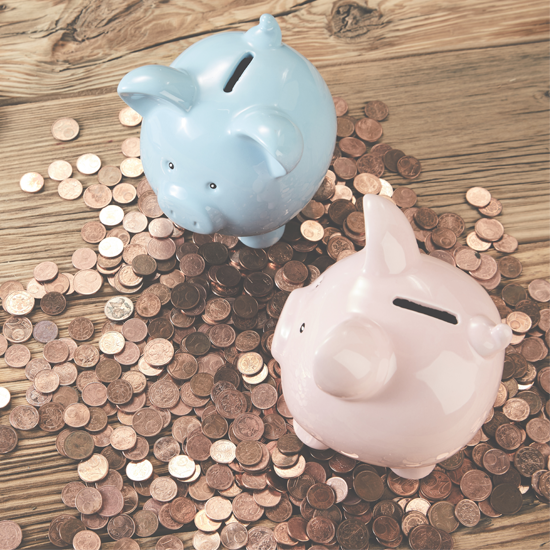How many ISAs can I have?
You can have as many ISAs (Individual Savings Accounts) in your name as you like, even if they're the same type of ISA, as long as you meet the criteria for opening them.
But you can only pay £20,000 into ISAs each tax year, no matter how many ISAs you split this across.
That’s good news for people who want to use ISAs to save for several different goals. The problem is, the more ISAs you have, the harder it can be to keep track of how much you’ve paid in each tax year.
If you pay more than £20,000 into ISAs in a single tax year (tax year runs 6 April to 5 April the following year), you could receive a fine from HMRC. No matter how many ISAs you have, this annual allowance stays the same.
Let’s be honest, for most of us, this isn’t a problem. However, it’s useful to be aware of this limit particularly if you receive inheritance or other unexpected lump sum.
How do ISAs work?
An ISA is simply an account for saving or investing money. It stands for Individual Savings Account.
But unlike other types of savings account, you don’t pay tax when you take money out of an ISA, no matter how much your original investment has grown. That’s because it doesn’t count towards your Personal Savings Allowance.
There are four types of ISA, which each work in different ways.
Types of ISA
- Cash ISAs work be earning interest, so you usually know roughly how much your money is going to grow over time. However, it does come with the risk of not keeping up with inflation. That’s when the cost-of-living goes up by more than the amount of interest you earn.
- There are also stocks and shares ISAs, like OneFamily’s Stocks and Shares ISA, which invest your money in the stock market on your behalf. Because it’s invested, there's a chance that the value of your money can go down but there’s also technically no limit to how much it can grow.
- Then you have lifetime ISAs, which are designed for people saving for their first home (or putting extra away for retirement. These are available as cash or stocks and shares, OneFamily offers a stocks and shares lifetime ISA. The government helps you to save with a lifetime ISA by topping up everything you pay in by 25%, so if you pay in £100 then it’ll add another £25. But you are limited to only saving up to £4,000 each tax year which limits the amount you can get from the government to £1,000 a year.
- Lastly, we have innovative finance ISAs. These are a type of “peer-to-peer lending” where the money you pay in is invested in a business. You get your money back plus interest.
Can you pay into more than one ISA?
Yes. You can pay into as many ISAs as you like but you can only pay up to £20,000 in total into ISAs in your name each tax year.
In the past, you could only pay into one of each type of ISA each tax year, but that rule was removed in April 2024.
You can now pay into more than one of the same type of ISA within the same tax year, for example you could put money into two different stocks and shares ISAs held with different providers.
Does transferring an ISA count as opening a new one?
No. As long as your original ISA is closed when the transfer is complete, transferring to a new one doesn't count as opening a new ISA. So, it doesn't affect your annual ISA allowance.
If you transfer money from a matured child trust fund to an ISA, this also doesn't count towards your annual ISA allowance, unless you withdraw the money rather than transfer it.
How to open an ISA
At OneFamily, we offer a stocks and shares ISA which invests on your behalf.
We also offer a lifetime ISA, which also invests in stocks and shares. You can read more about it on our Lifetime ISA page.
You may also be interested in:
Is it better to save or invest your money?
You can save money in a savings account, where it will grow with interest rates, or you can invest it in an investment fund, which buys shares in the stock market.
What to do if your stocks and shares ISA is losing value
Turbulent markets can affect the value of your stocks and shares ISA, but the worst thing you can do is panic.
How does the annual ISA allowance work?
Individual savings accounts (ISAs) allow UK residents to invest or save their money without paying tax on any money they make.
What is a “tax year” and does it affect you?
A tax year is simply the 12-month period that HMRC looks at to work out how much tax you should pay.

